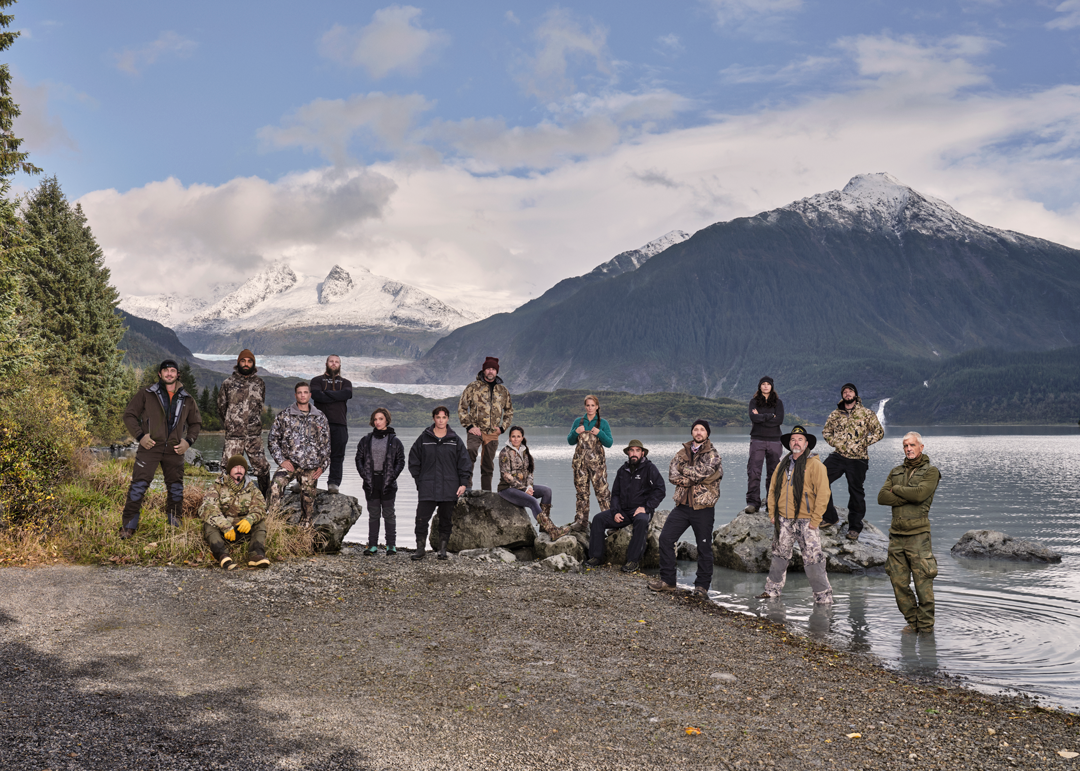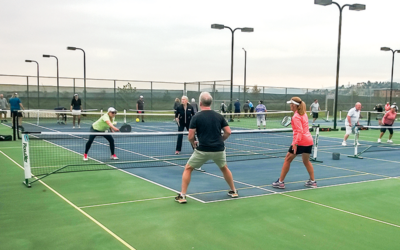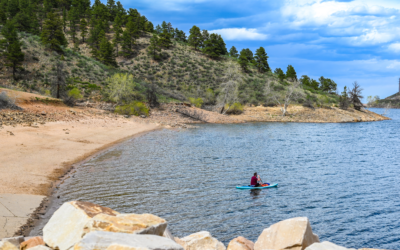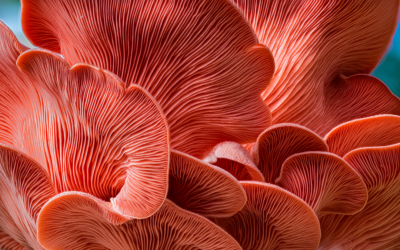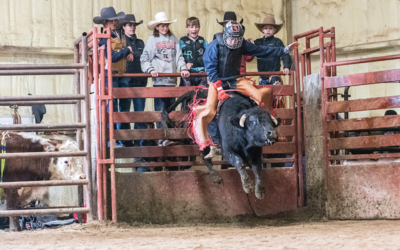By: Jared Fiel & Laurel Aiello
* Spoiler alert: This article reveals some plot points of the show “Outlast” on Netflix, which was released in March.
Tim Spears doesn’t really know how to be anything but himself. That’s probably why the Fort Collins resident was selected from roughly 2,000 applicants to be on the first season of “Outlast,” a survival competition show on Netflix, after applying from an Instagram ad.
Ultimately, Spears thinks his fun-loving personality is what got him chosen.
“I just figure it was comic relief,” he says. “It was so fun being in front of the camera. I could say anything I wanted, and I noticed I had the most bleeps out of everybody.”
(Editor’s note: Just about every quote from Spears is cleaned up a little since we don’t have a bleep system.)

Outlast. Timothy Spears in Outcast Season 01. Cr. Jose Mandojana/Netflix Copyright 2023
His mom, Wendy Robinson of Alabama, believes Spears was chosen because of the outdoor skills he learned from his grandfather on camping trips when he was a child. But that didn’t make it any easier for her to handle him going away.
“I’m a mama bear all the way,” she says. “It scared the crap out of me.”
“Outlast” puts a unique spin on the survival genre. The crew took 16 “lone wolf” outdoorspeople and forced them to work in teams to survive the cold, rain and snow of Alaska’s deep backcountry with limited supplies provided via airdrops.
Unlike other survival shows, no one person can win the grand prize of $1 million—the rule is that you can only win as a team, though the team you start with may not be the team you end with.
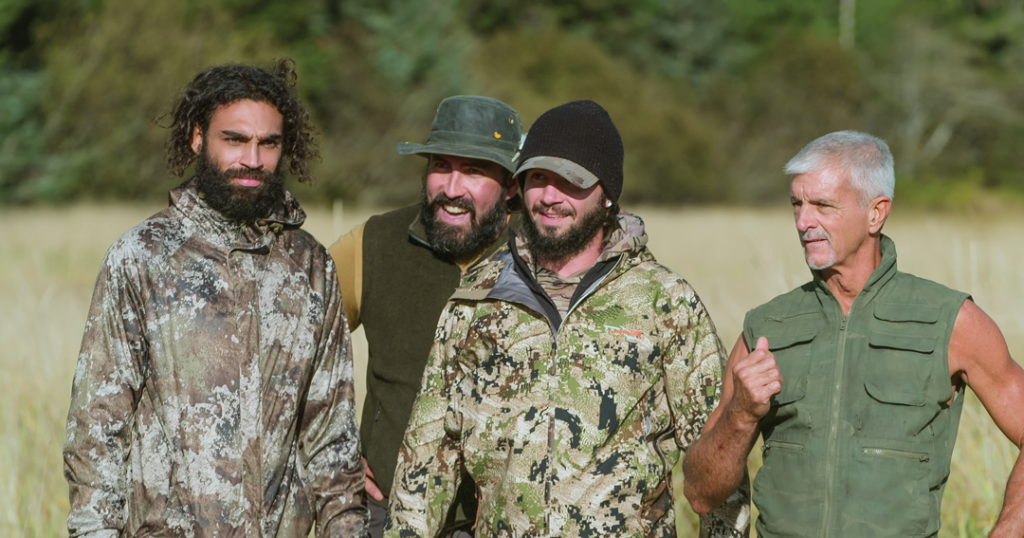
Bravo team-Corey, Javier, Tim and Brian. Photo courtesy of Netflix
That last part was something Spears says he didn’t hear when another contestant read the rules aloud before they broke into teams. It was somewhat of an ambush: The contestants were told to pick their teams at that exact moment without knowing anything about each other.
“I completely spaced when she read ‘The team you start with may not be the team you end with,’” he says. “That’s on me. Lesson learned there.”
Spears ended up on team Bravo, which included himself and three other men: Brian, Javier and Corey. He didn’t make it all the way; in fact, he only made it to day three, or episode two. But he says his early departure had little to do with the environment and more to do with his teammates—well, one teammate, and those who watch the show will know who.
On the second night, a heated argument ensued in camp Bravo over one of the guys getting up to urinate—something that wasn’t featured on the show because the camera crew left when the sun went down. The fight escalated as another teammate ranted about how he should relieve himself in a bottle rather than getting up and bothering everyone. Every other part of the argument can’t be printed in a family magazine.
“He would not shut up,” Spears says. “He is a good dude. He is the smartest one out there for sure, but I could not handle him. He is the main reason I left.”
Before filming started, 13 contestants took an Alaskan bow hunting course, and Spears, in one of his proudest moments, was the only one to pass and get his license to hunt with a bow and arrow during the competition. Another proud moment was designing his team’s shelter, though he didn’t get much credit.
“[The shelter] was my idea,” Spears says. “They made it seem like it was his (the guy he didn’t get along with). The one good thing I did was that, and they gave it to him.”
When he left the competition, the first thing Spears did was call his mom. After watching the show, she says she’s proud of him: “I loved the show. But I’m glad he left before it got ugly.”
“Outlast” does take a darker turn in later episodes, but Spears says that’s to be expected with cold, starving people fighting for their share of $1 million. In the end, he enjoyed watching the show but had some issues with the editing of his parts—one of which was his nickname.
“Awhile back, a friend sent me this meme that said, ‘I don’t know why people named Timothy go by Tim instead of Moth.’” he says. “When I got to Alaska, I decided I was going to go by this alter ego called ‘Mothman.’ [‘Outlast’] never showed anyone calling me Moth, but everyone on my team called me that.”
Prior to going on the show, Spears didn’t have a steady job, so he told producers he was unemployed. That, and his decision to leave the show on day three, has led to some snarky comments from fans of the show, but Spears is taking it in stride and has already asked the producers if he can return for the next installment.
His mom supports the idea: “I think that’s friggin’ fantastic. We’re going to get him some better shoes. We didn’t know what to expect last time.”
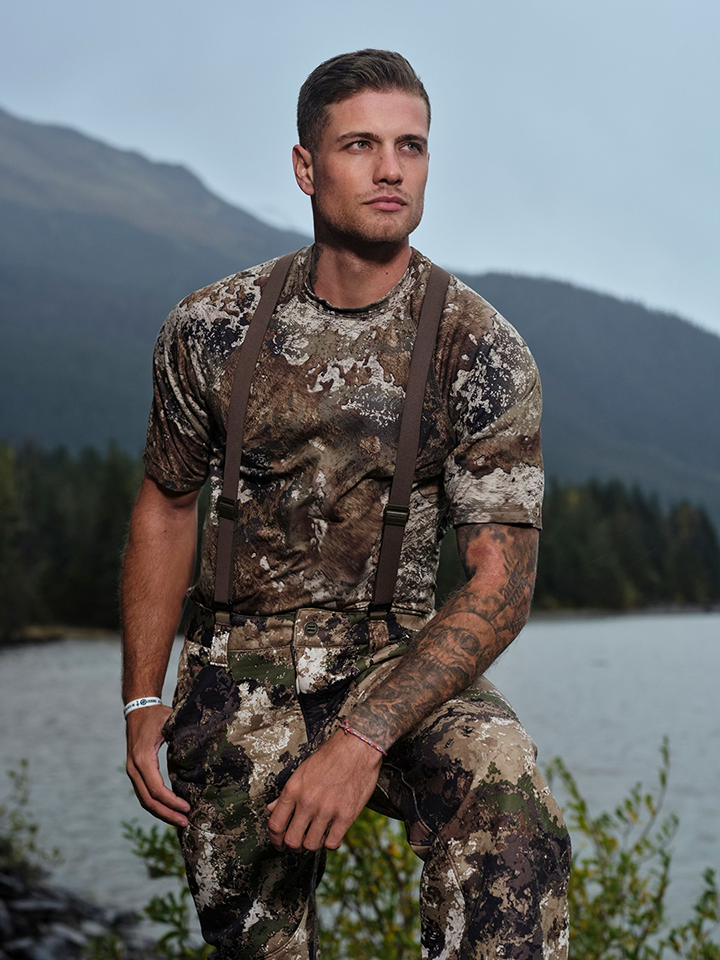
Jordan Williams. Photo courtesy of Netflix.
Oddly enough, shopping for gear was what made the other Fort Collins competitor, Jordan Williams, realize there would be someone else from his area competing on the show. Before leaving for Alaska, Williams stopped by Scheels in Johnstown and, after talking to a clerk about what he needed and why, found out that Spears had been in the day before for the very same reason.
“At that point I thought it was a scam,” Williams says. “I actually didn’t believe I was going to Alaska until I got to the airport and the ticket scanned. It was one of those moments where you ask yourself, ‘Is this really happening?’”
However, it did feel real for Williams once he boarded the Alaskan seaplane that flew the contestants to the rugged valley where the show would take place. A former marine, Williams compares it to the feeling he had when he left for bootcamp.
“In that situation, you get on a bus at night and they drive you away from everything you know,” he says. “I had no idea what this was going to be like, and when I got off the seaplane it rocked me quite a bit. The mountains and trees were so big, and it was immediately apparent that we were tiny people with a lot of ground to cover.”
Williams landed on team Delta with Dawn, Joel and Paul—a group made up of contestants who weren’t immediately grabbed by the others beside them. With a chip on their shoulder, the team grew close and worked hard to build their shelter, keep a fire going and look for food. Williams spent a lot of energy in the beginning hauling rocks to lay a stone floor that would keep his team off the soggy ground, and he spent days fishing at the river with no success.
“I never once saw any sign of life in the water,” he says. “I would lay at the edge of the river and think ‘Something has to move.’ There were hundreds of salmon carcasses littering the base of the river, and eventually I realized the salmon had already made their run and the bears got them. The other natural prey for the bears left, too: all the Sitka deer, squirrels and minks.”
Besides finding food, the hardest part of the competition for Williams was managing the energy output for each task knowing he likely wouldn’t get it back—a lesson he would learn the hard way. When an airdrop came with instructions to build a raft and race down the river to an island where crab traps were hidden, he gave it his all, and then some.
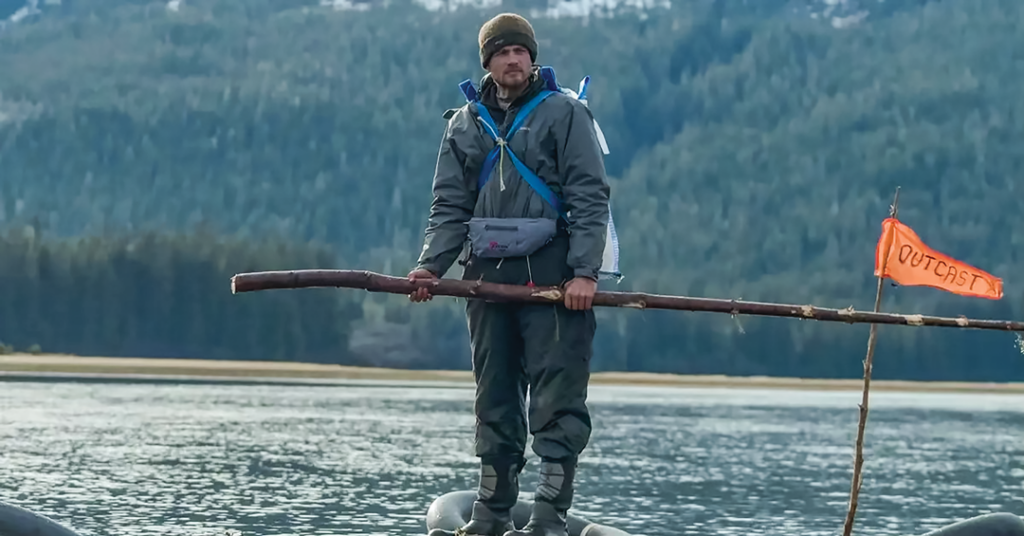
Jordan on the raft. Photo courtesy of Netflix.
In one of the most controversial parts of “Outlast,” Williams is shown doing pushups on his raft—seemingly to show off—while floating toward the island with a contestant from another team on his tail. Ultimately, he misses the island and the current takes him out toward the sea, but he says it had nothing to do with the pushups.
“I was the only one in the water when I did pushups on the raft,” he says. “I was showing Paul and Joel that our raft was so great that I could do pushups on it. But I actually agree with the show’s decision to portray it the way they did because there is a good lesson in it: Don’t do pushups before the finish line because you might lose the race.”
In reality, Williams says he was on the raft for 15 minutes and gave it 13-and-a-half minutes of hell. His raft was big and square, which made it hard to maneuver, and when the tide started to take him away, he couldn’t steer it back. He was only 200-250 meters away from the island when he realized he wasn’t going to make it.
“There was a lot of panic in me when I looked straight at the island and saw that the water was cutting at a 45-degree angle away from it,” he says. “I paddled as hard as I could, and I’d take this long stick and push off the bottom as hard as I could. It crossed my mind that I could jump into the water and swim to the island, but then I’d lose the raft. It was just unfolding in front of me uncontrollably, and I pretty much expelled everything I had.”
Though he wasn’t able to secure crab traps for his team, Williams redeemed himself a day or two later by killing a mink and bringing it back to camp Delta for dinner. He and Paul had been foraging that evening and saw it come out of the water, and Williams ran it down, cornered it and stabbed it with an arrow.
Despite it being an impressive feat to accomplish on an empty tank, Williams says the show left the kill out because it was illegal. It turns out the contestants weren’t given a free pass on hunting and fishing regulations just because they were starving in the Alaskan wilderness.
The following days were rough for Williams. He was lightheaded and lost consciousness several times while trying to chop firewood, and he barely missed his thumb once with the hatchet. The last time he passed out, he fell into a tree, slid off and nearly impaled his eye on a stick protruding from the ground.
“Paul woke me up—he was yelling ‘Jordan, Jordan!’ and calling for a medic,” he says. “The raft was the first thing that got me in the red, but the mink is really what caused me to leave the show. I did two full-throttle events that wiped me out, and the medical staff recommended I didn’t return because it was a safety concern.”
Williams made it to day 13, but he realized he was doing too much even before he was medically extracted. Looking back, he says he was trying to be superman with no fuel, and doing too much labor for his team is what inevitably cost him the win.
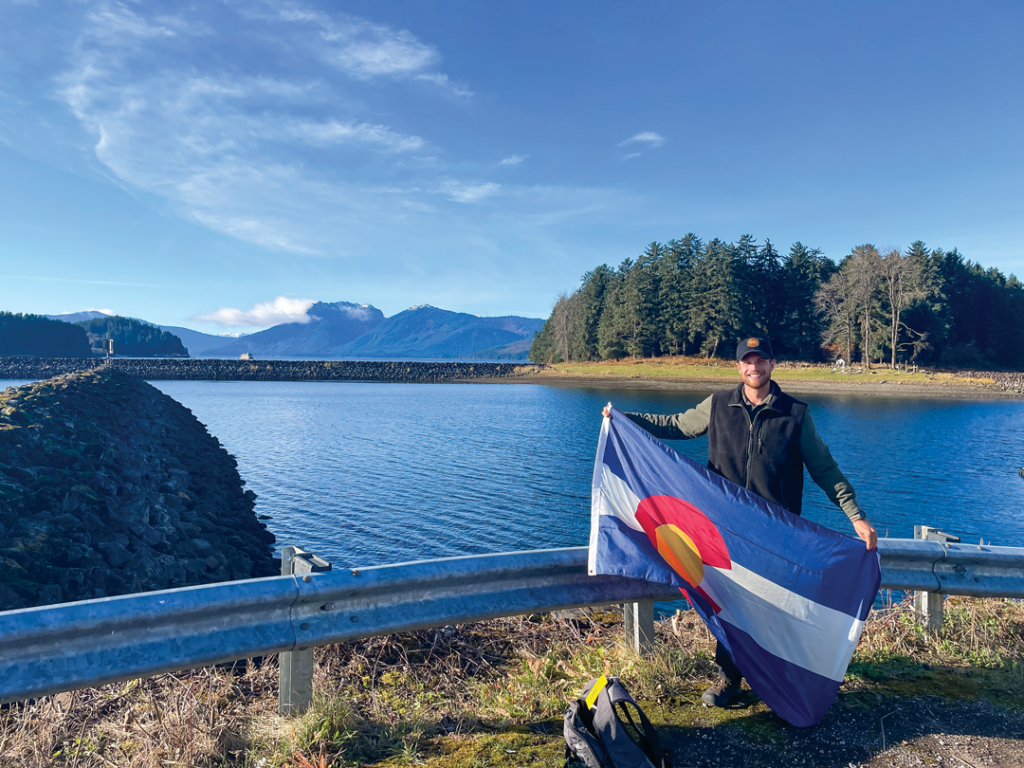
Jordan proudly representing Colorado upon his arrival in Alaska.
“I don’t know how I would have done it differently. That’s just the person I am—I went out there and tried really hard at everything,” he says. “I was not relieved or happy when I left. I was in a state of shellshock, and I wanted revenge [against] the version of myself that was out there. I wanted him to learn all those lessons, and I don’t ever want to make those same mistakes again.”
Now that time has passed, Williams has made peace with his ending on the show and has enjoyed being back home with his family. It took a month for him to be able to walk normally again, and then, in an attempt to shake off the trauma of the show, he entered a weight-lifting competition to “get back on the horse.”
“Outlast” has given him a lot of exposure since it came out on Netflix, something he has benefitted from through modeling contracts and stand-up gigs around the country. But he hasn’t forgotten the struggles he went through to get there.
“I got my ass handed to me [on the show], and I have to be able to look in the mirror and move forward,” he says. “But a little bit of me is always there. Sometimes I close my eyes and see Alaska again, and I remember what the ground was like. I know exactly where my team was, and I will absolutely go back and pay homage someday.”


